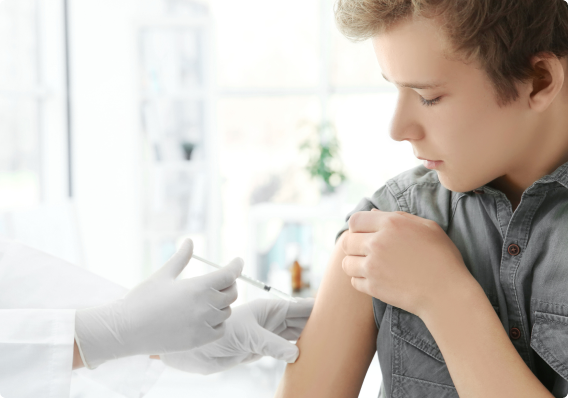Teenage vaccination2
There are vaccines available to cover the main groups of invasive meningococcal disease:
- Meningitis ACWY:
- Meningitis B:
This is on the NHS schedule and is offered in school or local surgery to 13 to 15 year old pupils as part of the school age immunisation service. Teenagers should check they have had this vaccine with their healthcare professional.
This is offered by the NHS to babies born after May 2015. Teenagers are unlikely to have received this.
Contact your healthcare professional (doctor, nurse, pharmacist) for more information.







